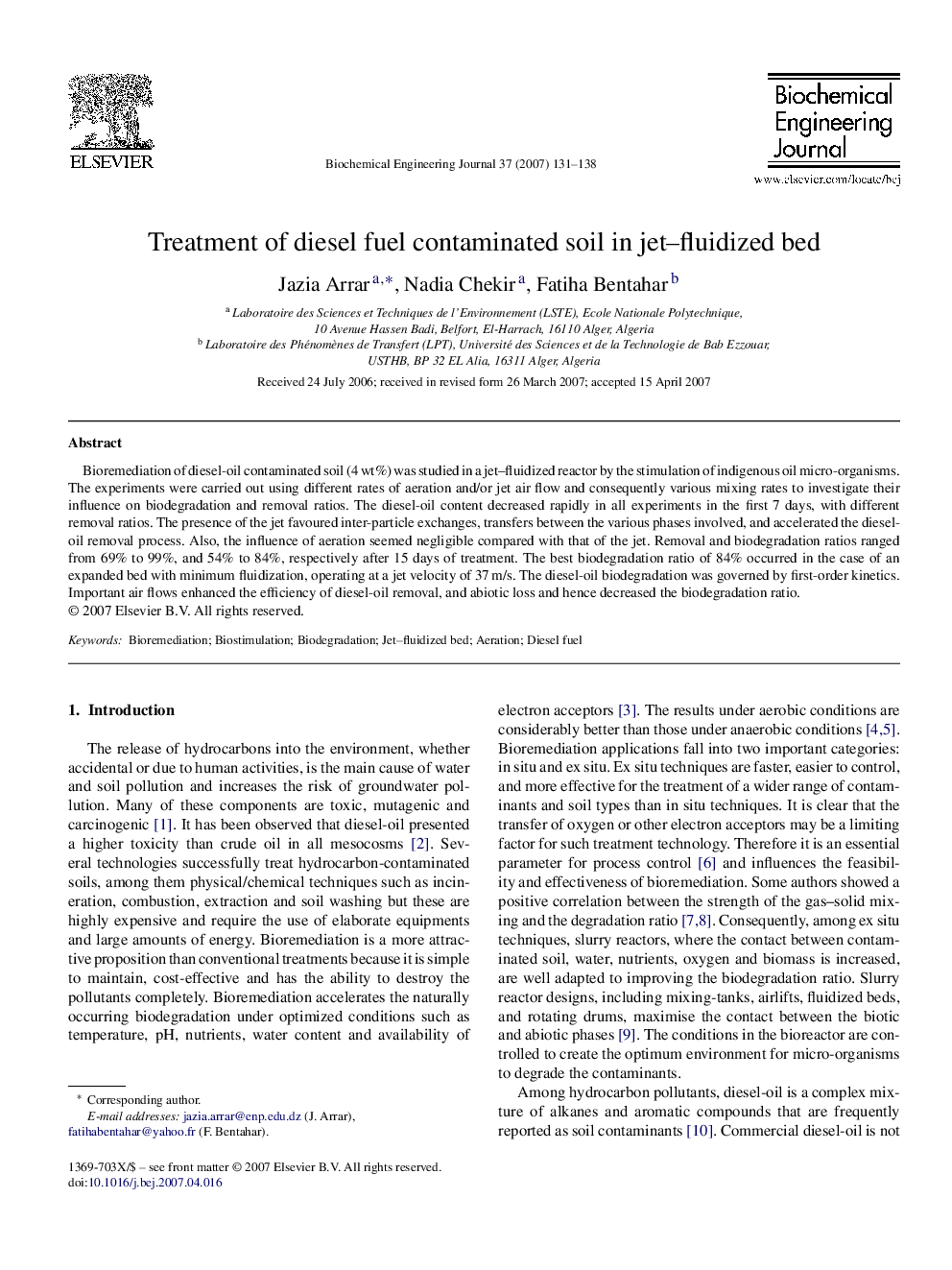| Article ID | Journal | Published Year | Pages | File Type |
|---|---|---|---|---|
| 4719 | Biochemical Engineering Journal | 2007 | 8 Pages |
Bioremediation of diesel-oil contaminated soil (4 wt%) was studied in a jet–fluidized reactor by the stimulation of indigenous oil micro-organisms. The experiments were carried out using different rates of aeration and/or jet air flow and consequently various mixing rates to investigate their influence on biodegradation and removal ratios. The diesel-oil content decreased rapidly in all experiments in the first 7 days, with different removal ratios. The presence of the jet favoured inter-particle exchanges, transfers between the various phases involved, and accelerated the diesel-oil removal process. Also, the influence of aeration seemed negligible compared with that of the jet. Removal and biodegradation ratios ranged from 69% to 99%, and 54% to 84%, respectively after 15 days of treatment. The best biodegradation ratio of 84% occurred in the case of an expanded bed with minimum fluidization, operating at a jet velocity of 37 m/s. The diesel-oil biodegradation was governed by first-order kinetics. Important air flows enhanced the efficiency of diesel-oil removal, and abiotic loss and hence decreased the biodegradation ratio.
